Day 9 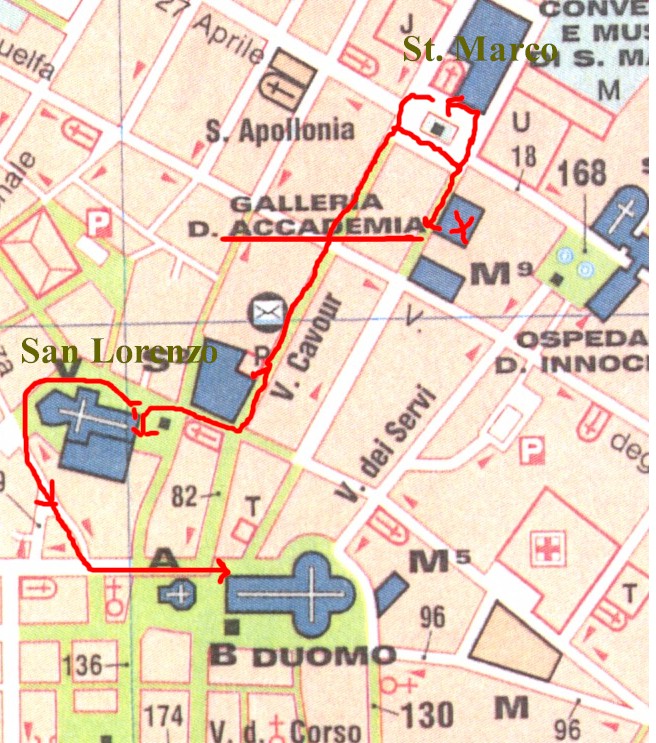
Thursday, May 15
FLORENCE
We got up early again and had
breakfast together. We drove to Fiesole and caught the bus to Florence.
We had at 10:30 reservation at the Galleria dell’ Accademia.
We got there in plenty of time so we had a coffee first in a nearby cafe.
Even though we had been to the Accademia the last time we were in
Florence, we wanted to see Michelangelo’s David again…so did Mike and Mary.
The Accademia was founded in 1563 and was the first school in Europe set
up to teach techniques of drawing, painting and sculpture. 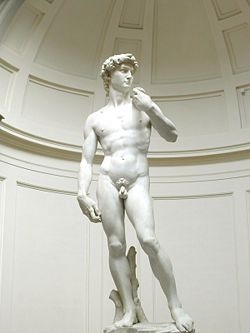
The statue of David is the
most famous piece of art in the Accademia.
Michelangelo began carving this seventeen foot statue in 1501 in front of
the Palazzo Vecchio in the Piazza della Signoria.
It was moved indoors to the Accademia in 1873.
There is a copy of the statue in its place in the Piazza.
The statue is really breath taking.
We were able to see a lot of other works while we were in the Accademia.
Again as with the Uffizi and other museums, we recommend that you buy
your tickets on line well before beginning your trip.
There is always a long line at the Accademia and with a time scheduled
tickets, you go right in.
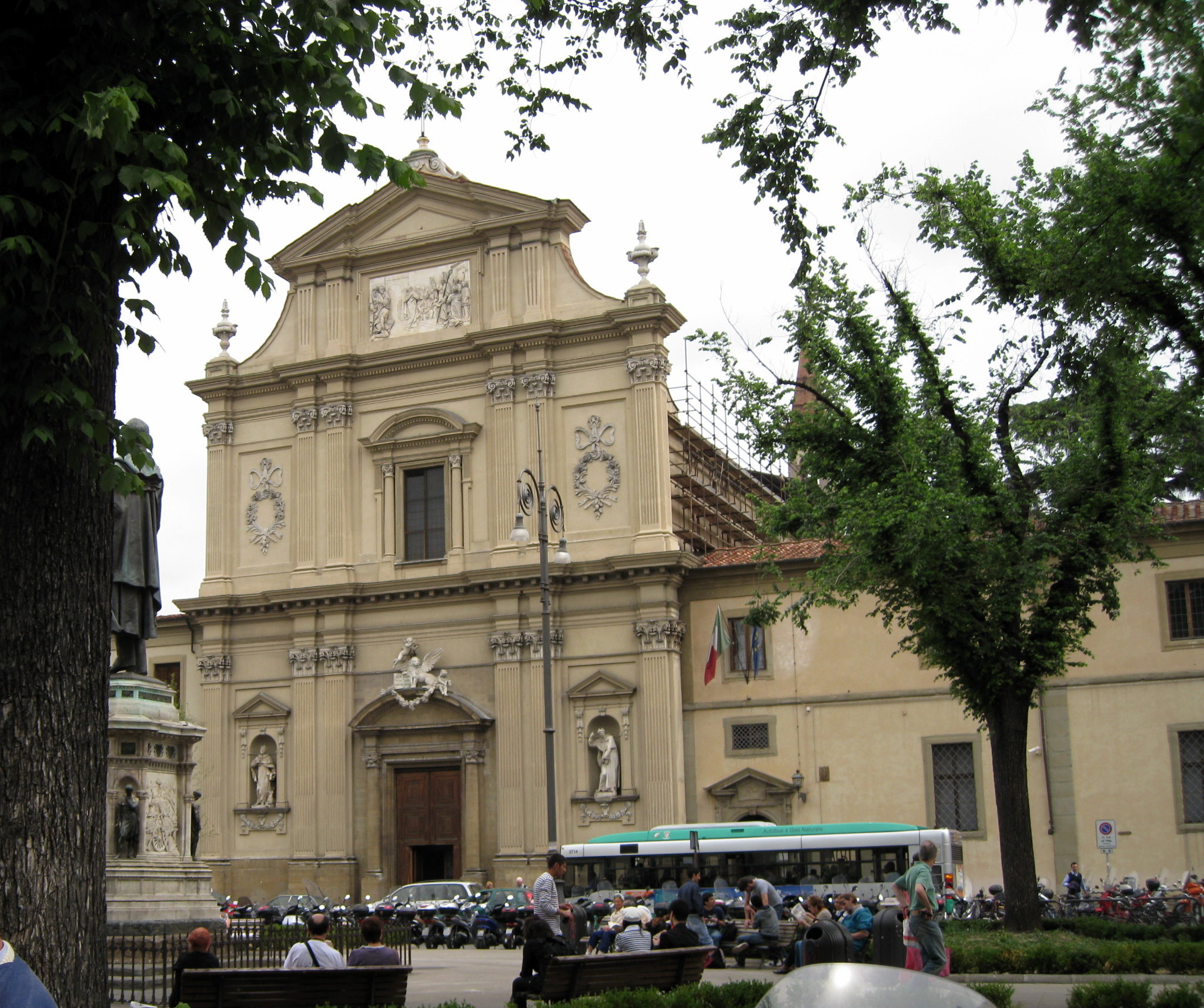
Nearby were St. Marco Square
and St. Marco’s church and monastery. The
monastery, which is now a museum, was during the 15th century, home to two
famous Dominicans, the painter Fra Angelico and the preacher, Girolamo
Savonarola . The monastery was
founded in the 13th century and enlarged in 1437 by Cosimo de'
Medici. Each cell of the monk’s
cloister and many other walls were decorated by Fra Angelico in
collaboration with others, including Benozzo Gozzoli . San Marco is famous as
the seat of Savonarola's
discourses during his short spiritual rule in Florence in the late
15th century. He was later burned in
the Piazza della Signoria as a heretic.
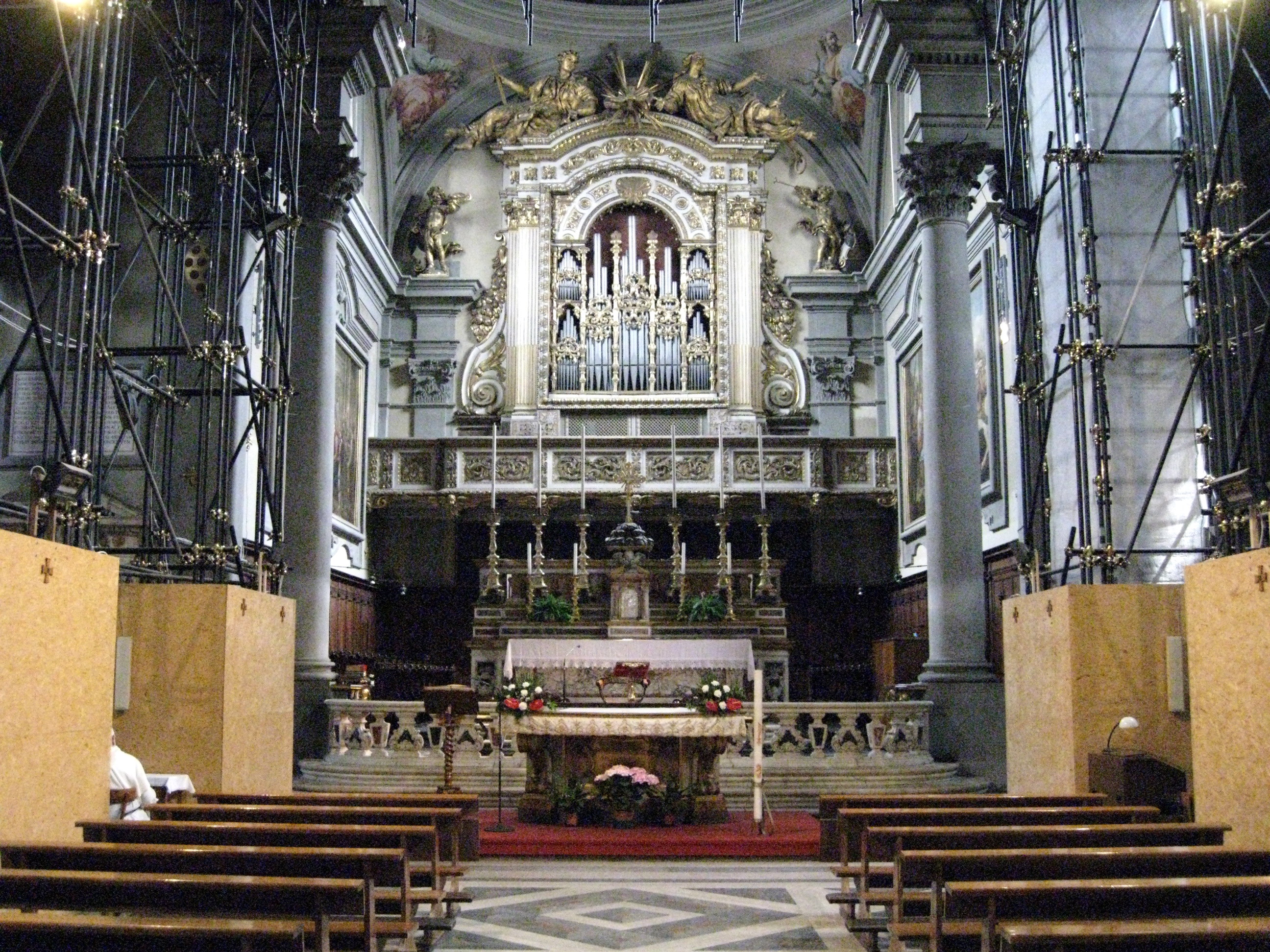
The
church itself was consecrated in 1443. It has a single nave with side chapels
designed in the late 16th century by Giambologna, and houses paintings from the
16th–17th centuries. In the late
17th century the apse and the carved ceiling were completed. A further
renovation was carried out in 1678. The fa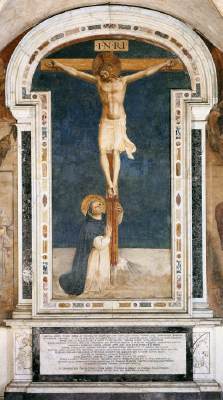 çade, in the Neo-Classical style ,
was built in 1777–1778.
çade, in the Neo-Classical style ,
was built in 1777–1778.
The
crucifix on the high altar is by Fra Angelico (1425–1428). In the first altar
to the right is St. Thomas Praying by Santa di Tito from 1593, while on
the second altar is a Madonna with Saints by Fra Bartolomeo.
There
was some restoration going on in the church.
We getting hungry but Mike was feeling unwell so my wife and I stopped at
a nearby cafeteria. Mike and Mary decided to skip lunch and look for an internet
café. The cafeteria had several
rooms and was very attractive. I had Lasagna and my wife had canatini.
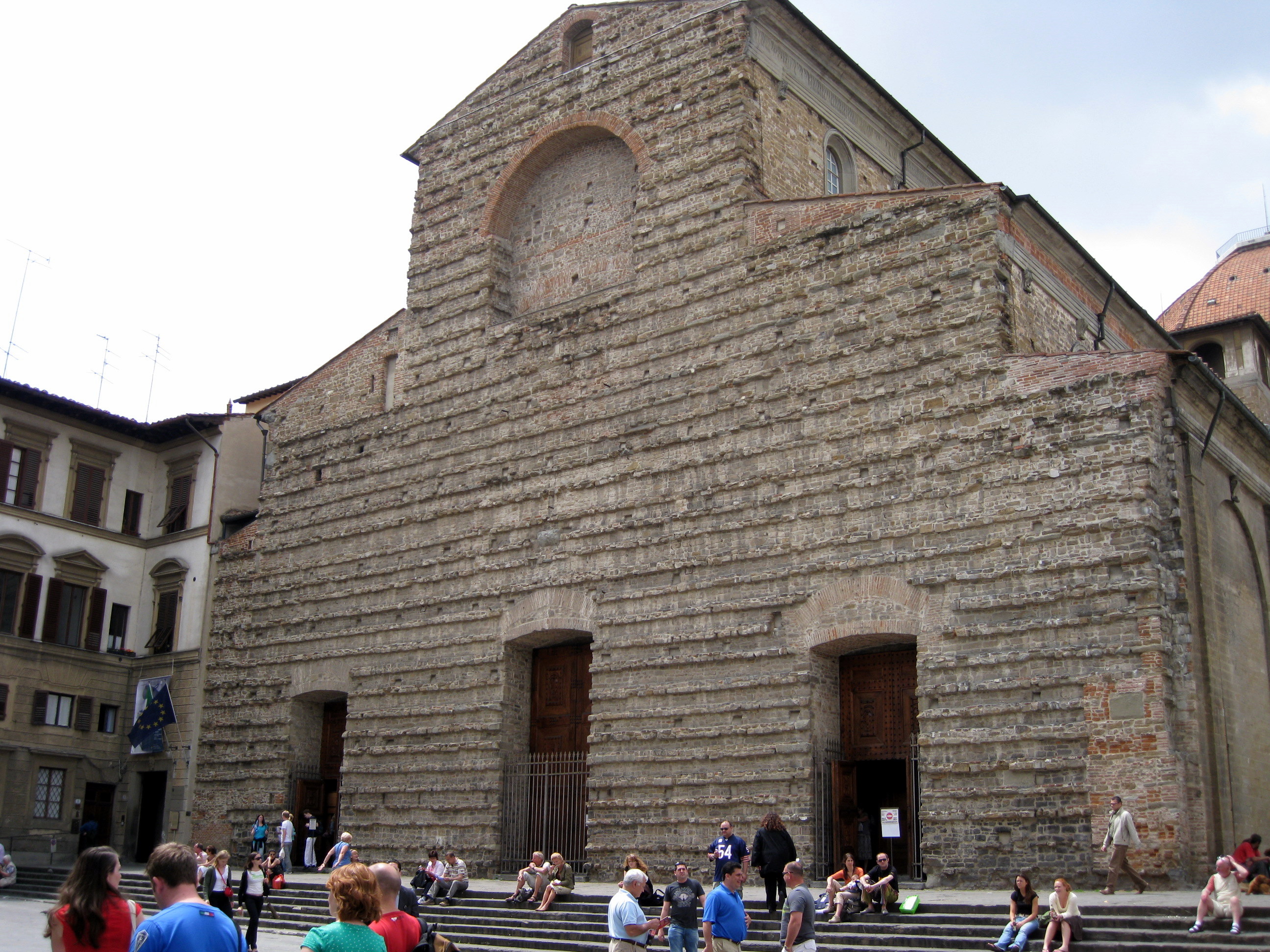 Next
the two of us went to San Lorenzo
church.
San
Lorenzo was the parish church of the Medici family, who lavished their wealth on
its adornment. Brunelleschi, who
built the dome for the Duomo, rebuilt the church in the Renaissance Classical
style in 1419. The exterior face was the same unfinished fire brick that we had
seen in several other churches and was never completed even though Michelangelo
submitted several designs.
Next
the two of us went to San Lorenzo
church.
San
Lorenzo was the parish church of the Medici family, who lavished their wealth on
its adornment. Brunelleschi, who
built the dome for the Duomo, rebuilt the church in the Renaissance Classical
style in 1419. The exterior face was the same unfinished fire brick that we had
seen in several other churches and was never completed even though Michelangelo
submitted several designs.
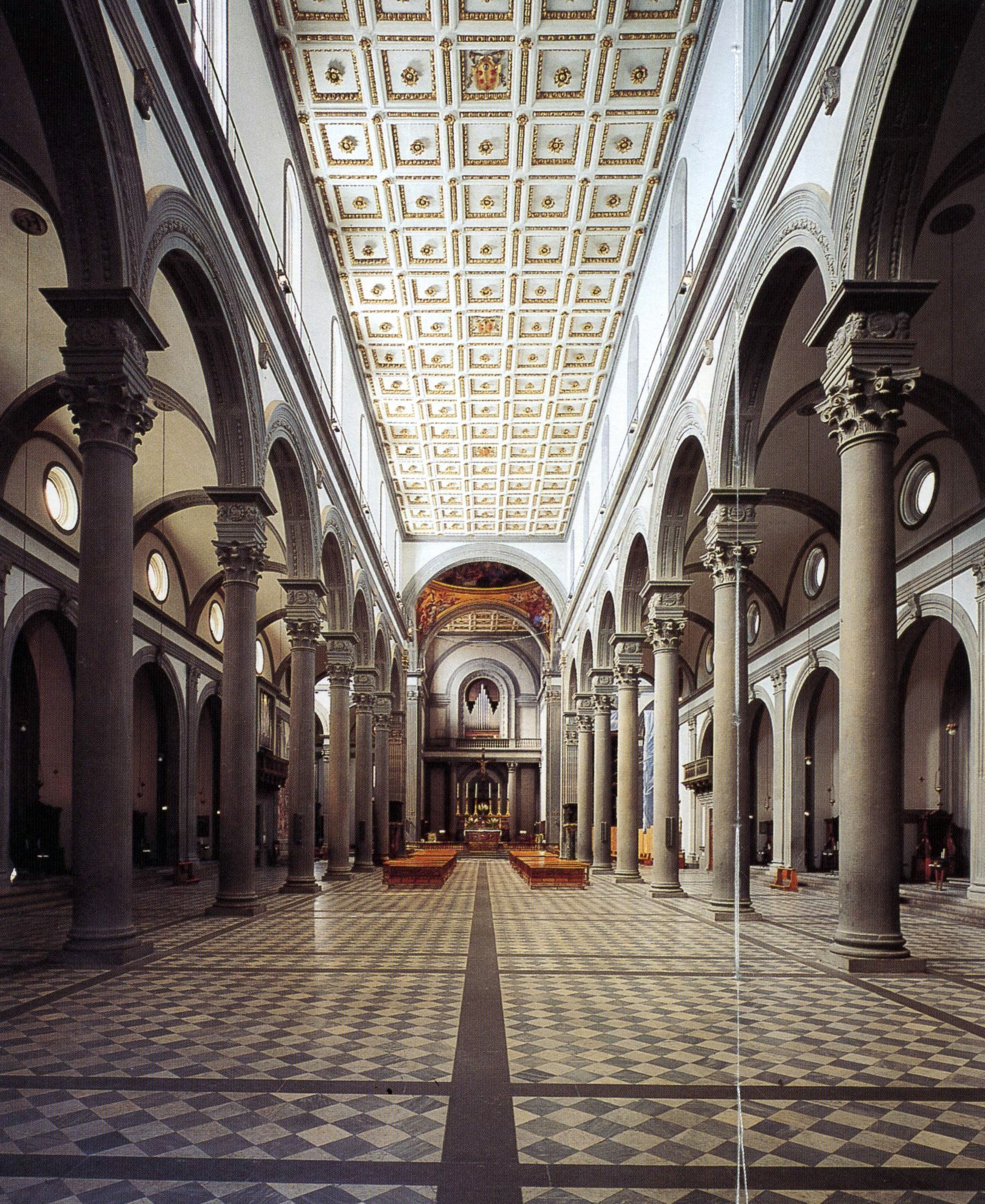
It
was quite beautiful on the inside. Of
note was Donatello’s pulpit which he craved out of bronze in 1460 at the age
of 74. In order to enter the
Cappella dei Principi and the Medici tombs, we had to go back out and around to
the back of the church. 
There were a lot of vendors
all around the outside. We bought
our grandchildren a couple of soccer shirts.
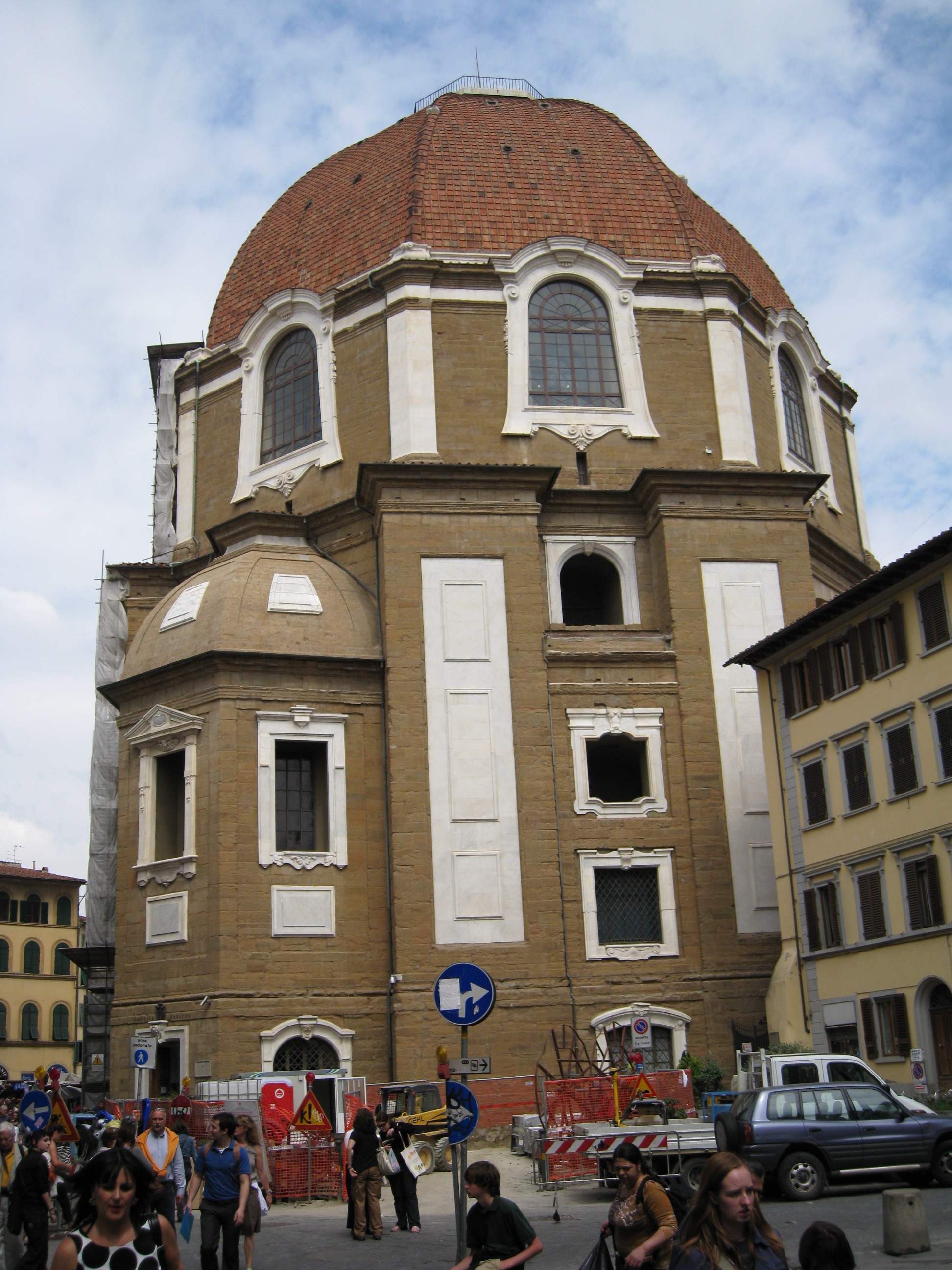
We walked behind the church
and found the Capella dei Principi, which
was begun in 1604 but not completed until 1962.
Above was a huge dome similar to the Duomo’s but designed by
Buontalenti.
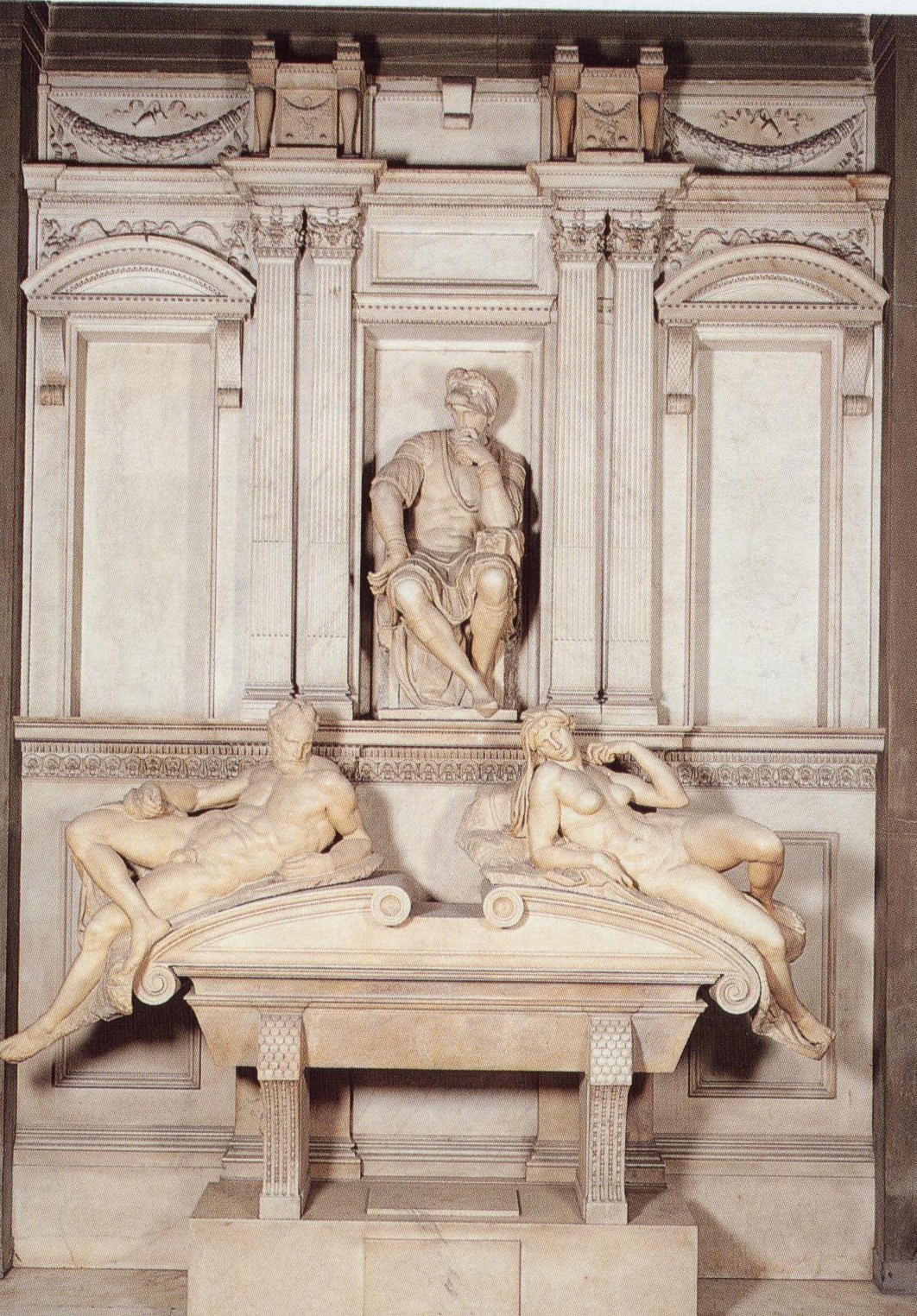
From
there we entered the Medici Chapel where we saw the
tombs of several members of the Medici family with statues by Michelangelo.
We walked back toward to
Duomo. Behind it we found a nice
sidewalk café where I had a gelato and my wife had cake and coffee.
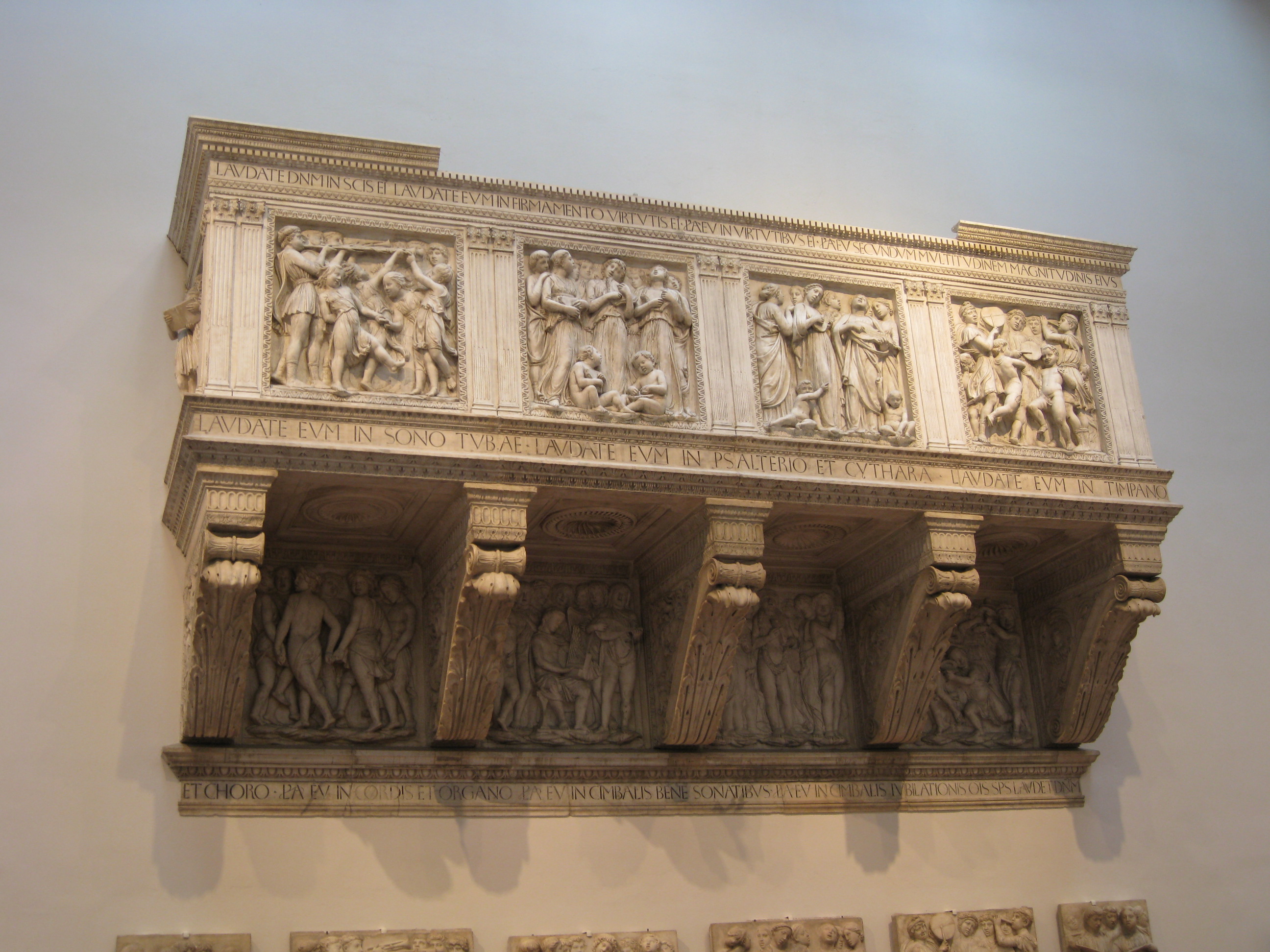
The Duomo museum was open so
we ventured in and saw a lot of wonder original statuary that had been in and on
the Duomo. The original baptistery
door panels were there. Photographs
were allowed.
We met Mike and Mary at the
Duomo steps and caught the bus back to Fiesole.
Mike wanted to go back to the Ristorante La Tavernetta in
Pontassieve where we had eaten two
nights before. The food had been
good even though it was some distance away.
We were among the locals again who gave us the once over. I had steak
again. They changed from the small
mushrooms to ONE big one. My wife
had a pizza. Tomorrow
will be our last day in Tuscany.



 çade, in the Neo-Classical style ,
was built in 1777–1778.
çade, in the Neo-Classical style ,
was built in 1777–1778. Next
the two of us went to San Lorenzo
church.
San
Lorenzo was the parish church of the Medici family, who lavished their wealth on
its adornment. Brunelleschi, who
built the dome for the Duomo, rebuilt the church in the Renaissance Classical
style in 1419. The exterior face was the same unfinished fire brick that we had
seen in several other churches and was never completed even though Michelangelo
submitted several designs.
Next
the two of us went to San Lorenzo
church.
San
Lorenzo was the parish church of the Medici family, who lavished their wealth on
its adornment. Brunelleschi, who
built the dome for the Duomo, rebuilt the church in the Renaissance Classical
style in 1419. The exterior face was the same unfinished fire brick that we had
seen in several other churches and was never completed even though Michelangelo
submitted several designs.





